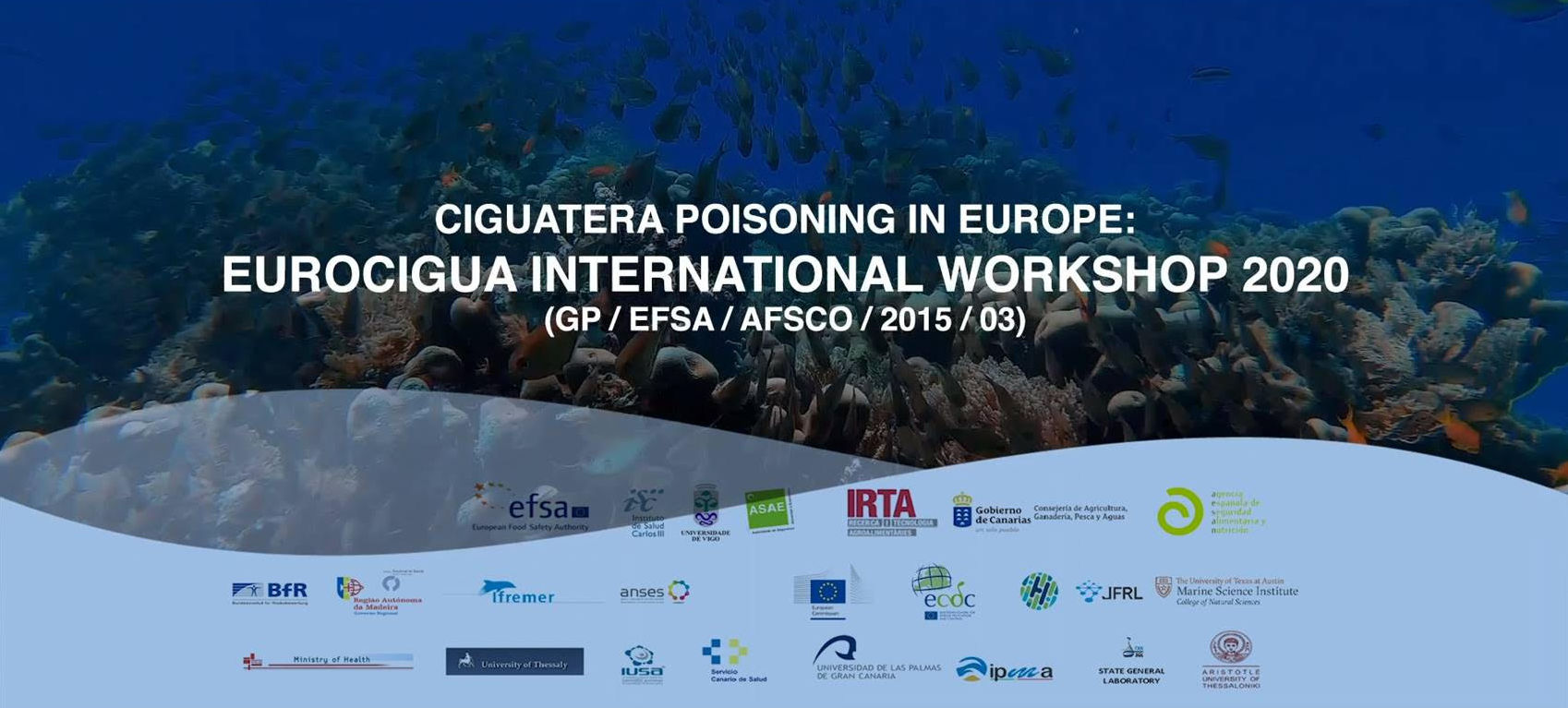International EuroCigua Workshop 2020
The Spanish Food safety and Nutrition Agency (AESAN), as coordinator of the project Risk Characterization of Ciguatera Food Poisoning in Europe (EuroCigua), organized the International Workshop on Ciguatera in Europe, which was held on October 14th and 15th, 2020 to mark the completion of the EuroCigua project. Within its communication and dissemination activities, AESAN has elaborated an informative video that summarizes the main findings of the project, as well as the conclusions reached and future actions.
The EuroCigua project involves fifteen scientific institutions from six Member States (Spain, Portugal, France, Germany, Greece and Cyprus), creating a multidisciplinary team of excellence with an Advisory Board consisting of leading international experts on ciguatoxins and European institutions such as the European Food Safety Authority (EFSA), the European Center for Disease Prevention and Control (ECDC) and the Joint Research Center (JRC). EuroCigua is divided into four sub-projects: Management and Scientific Coordination, with AESAN as the leading Institution; Epidemiology, coordinated by the National Centre for Epidemiology of the Carlos III Health Institute (CNE-ISCIII); Evaluation of ciguatoxins in seafood and environment, coordinated by the Institute of Agrifood Research and Technology (IRTA); and Characterisation of ciguatoxins present in the EU, including the development of reference materials, led by the University of Vigo (UVIGO).
The meeting was conducted online, and it was attended by a total of 100 participants. Half of the attendees were the members and collaborators of the EuroCigua project consortium. The rest of participants were international experts on ciguatera poisoning from other parts of the world such as the US, Canada, Norway, Australia and Japan, and from different international organisations such as the United Nations’ Food and Agricultural Organization (FAO).
The video summarizes the development of this scientific forum on ciguatera as an emerging risk in Europe and collects the results in the research areas of the project. These results have allowed the project to confirm the appearance of Ciguatera in the European Union, having identified native species of fish with ciguatoxins in Macaronesia, Madeira and the Canary Islands. Additionally, the presence of Gambierdiscus in the Mediterranean Sea, Cyprus and Greece has also been confirmed, as well as its first appearance in the Balearic Islands. Analytical methods to characterize ciguatoxins have been developed, identifying C-CTX-1 as the primary component responsible for intoxication in this area. Additionally, reference materials have been developed within the network of national laboratories of reference in marine biotoxins in order to improve the current detection techniques for these toxins.
On the other hand, the video also includes some of the projects that study the ciguatera in different parts of the world besides Spain, such as Japan, Australia and Norway. Finally, the Workshop closed with a round table of excellence in which many relevant topics on ciguatera were discussed that will be the basis for new research that will improve the management of this important food poisoning.
The video has been published on AESAN’s YouTube channel and can be accessed here
Short video is available here
